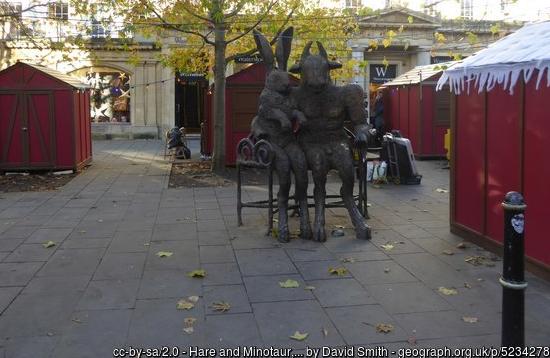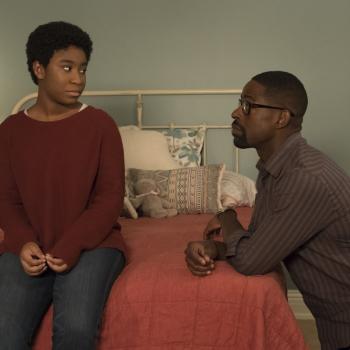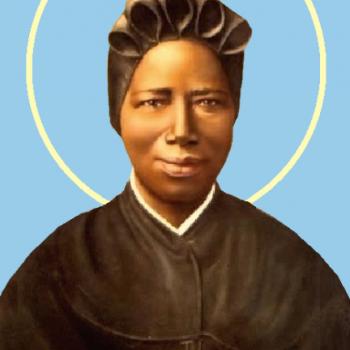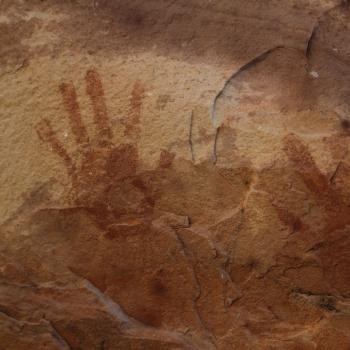Guest post by Meghan Barylak

Sexual trauma creates a unique loss of self. Because of that terrifying loss of control and personal agency, the grip you had on who you are, what makes you Yourself is stripped so violently away a sucking chest wound is left in place of your understanding of You. It’s a hole you become desperate to repair.
Sexual trauma drops you in a labyrinth, to seek your Self again in the darkness among monsters. And there isn’t just one Minotaur in the darkness with you, hunting you, there are many who are savvy about playing upon the triggers of trauma: predatory bosses and exploitative jobs, dates that become date rapists, abusive spouses, the porn culture that tells you that to choose exploitation is empowerment and the purity culture that tells you your value as a human being lies in what has or has not been done to you.
Why am I writing about the evils of sexual trauma – a reality everyone is at least vaguely aware of? Because despite our culture’s lip service to feminism and the realities of sexual violence, we still don’t get it. Because here we are as a culture, celebrating the panderer Hugh Hefner, father of modern porn distribution, as a champion of sexual empowerment.

Is consent not the magic word, which ensures empowerment and liberation? If someone agrees to something, no matter how pornographic or demeaning, does that not at least guarantee their free choice in telling their own narrative?
From the twists and turns of the labyrinth, there is a resounding no. To consent to exploitation does not stop it from being exploitative; it means you have been coerced, in one way or another, into participating in self-exploitation— you have been deceived into believing that acting out another’s narrative for other people’s enjoyment has anything to do with you.
It’s an incredibly complicated thing, when your personhood has been crushed through sexual exploitation. After sexual trauma, one of two extremes is likely—sexual frigidity or promiscuity. Sexual frigidity is relatively straightforward: sexuality itself has become a trigger which causes a shut down. Post-trauma promiscuity is a more convoluted reaction— it is born from a desire to regain the power of consent. It is a compulsion to play out the abuse in a way that reframes the original trauma as an event you have control over. So yes, to engage in self-exploitation might feel like empowerment, because the abusiveness of the situation is something you now somewhat control – and may even enjoy on some level – but it’s a lie at heart. Convincing for a while, but there is no authentic healing there. And the monsters become more difficult to identify.
I don’t want to wade into the debate about Hefner and his pandering empire, and I do not want to speak for other people’s intentions when they need to speak for themselves. All I want to say is we need to be more aware and more compassionate about the long-term effects of trauma. We need to stop sanctifying porn as empowering when it is a clear, predatory manoeuvre by abusers skilled in manipulating the triggers of wounded people, struggling in the darkness. We need to stop equating value based on one’s sexual experiences or lack thereof, stop looking at other people as goods, damaged and undamaged.
We need to remember that Christ reached across the social divide and into the darkness, extending His hand to the woman condemned to be stoned; He spoke to the many-times divorced woman at the well; He ate with sinners, because to Him they were all brothers and sisters. Not the sum total of their experiences, or the lack thereof.
One of the many reasons the exploitation of porn dehumanizes is the flip side of Puritanical sexual rigidity: it obliterates the individual to fit a fantasy of Woman; madonna or whore.
So, what does empowerment in pop culture look like? I know what strikes me: the storytelling of artists who are telling true stories, not to apologetically whitewash or titillate but to speak truth. Recent projects of artists like Rihanna and Kesha are giving voice to victimhood and suffering; films like Colossal and TV series like Big Little Lies show abuse and trauma and the people it affects with gritty, uncomfortable authenticity. They kick against the virgin sacrifices of perfect victimhood and the pornified Playboy Bunny who lives to fulfill male fantasy, and they instead tell real stories of full, complex human beings.
That’s the real rebellion against misogyny and dehumanization in all its forms: to be flawed, hurting, imperfect, yet still be complete. To reach past the minotaurs in the dark to take the extended hand of Christ, Who will always say, “You are my child in whom I am well pleased.”
(Labyrinth image via Pixabay, CC0 license.
Meghan has been an educator, editor, theatre costumer, and jack of all trades. You can read more of her freelance writing at Verily Mag.












